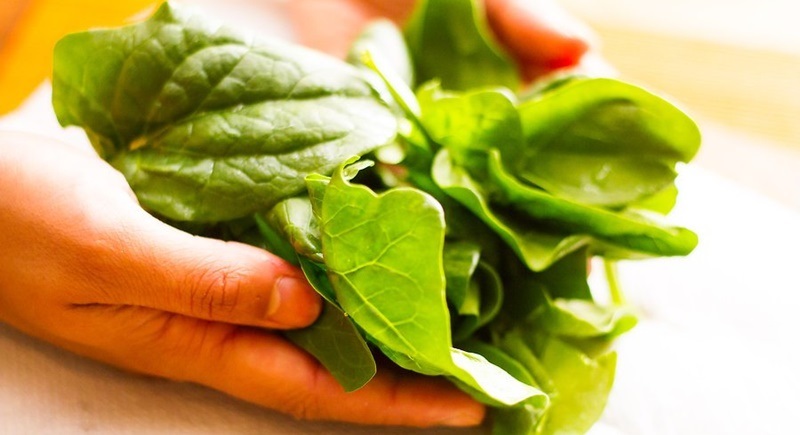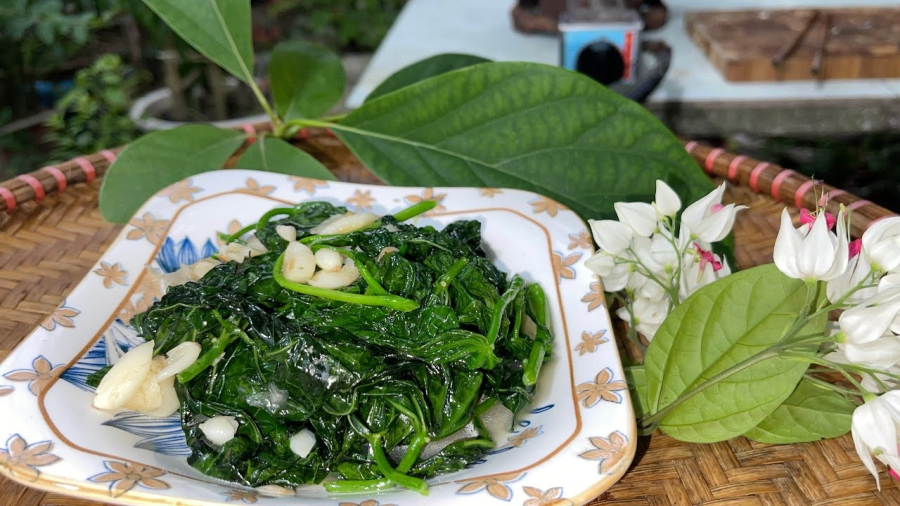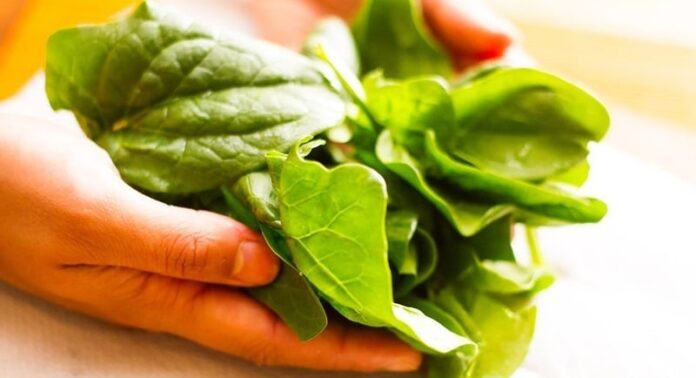Spinach is a superfood that becomes even more nutritious when cooked. Spinach, also known as spinach beet or spinach, is a dark leafy green vegetable packed with essential nutrients, especially calcium and iron, which are crucial for bone health, circulatory system, and blood sugar control in children. However, only when cooked at high temperatures, spinach releases calcium, iron, and other minerals such as potassium and magnesium for optimal absorption by the body.

Spinach: A Superfood for Children’s Growth and Development
1. Spinach – A Nutrient-Dense ‘Superfood’
Spinach is a dark, leafy green vegetable loaded with vitamins and minerals essential for overall health. Some of the key nutrients found in spinach include:
-
Iron: It aids in red blood cell production and helps prevent anemia.
-
Calcium and Magnesium: These minerals are crucial for bone health and prevent osteoporosis in older adults.
-
Vitamins A, C, and K: They boost immunity, act as antioxidants, and promote healthy skin.
-
Folate: This B-vitamin is vital for fetal development and neurological health.
2. Why is Cooked Spinach More Nutritious?
Unlike many other vegetables that lose nutrients during cooking, spinach becomes more nutritious when properly prepared. Here’s why:
-
Improved Iron and Calcium Absorption: Spinach contains oxalic acid, a compound that inhibits the absorption of iron and calcium. Cooking breaks down oxalic acid, enhancing the body’s absorption of these minerals.
-
Release of Antioxidants: Cooking increases the levels of beta-carotene and lutein in spinach, providing enhanced protection for your eyes and effective anti-aging benefits.
-
Easier Digestion: Raw spinach contains high levels of oxalates, which some individuals may find difficult to digest. Cooking significantly reduces oxalate content, making it gentler on the digestive system.
3. Best Methods for Cooking Spinach
To maximize the nutritional benefits of spinach, consider the following cooking methods:
-
Quick Boiling: Boil spinach for 1-2 minutes to retain the most nutrients.
-
Light Stir-Frying: Sautéing with olive or coconut oil helps release fat-soluble vitamins such as A, D, E, and K.
-
Steaming: This method preserves the nutritional value and prevents dehydration of the leaves.
-
Soups or Broths: Cooking spinach in liquid helps retain water-soluble minerals.

Spinach: A Superfood for Children’s Growth and Development
4. Who Should Eat Spinach Regularly?
-
Children and Pregnant Women: Spinach provides folate and iron, supporting overall development and fetal health.
-
Seniors: It helps prevent osteoporosis and age-related macular degeneration.
-
Individuals with Iron Deficiency Anemia: Spinach is a natural source of iron.
-
Those Managing Their Weight: Spinach is low in calories but packed with nutrients, promoting satiety and healthy weight management.
5. Precautions When Eating Spinach
While spinach offers numerous health benefits, there are a few precautions to keep in mind:
-
Avoid excessive consumption of raw spinach due to its high oxalate content, which can contribute to kidney stone formation.
-
Individuals with kidney or gout issues should consult a doctor before increasing their spinach intake.
-
Do not overcook spinach to prevent the loss of vitamins and minerals.
Spinach is a delicious and highly nutritious vegetable, especially when cooked. Whether for children or seniors, incorporating spinach into daily meals offers a plethora of health benefits. By preparing it correctly, you can ensure your body reaps the maximum rewards and stays energized and healthy!
The Ultimate Blood-Boosting Foods: Nature’s Very Own Banks
When it comes to blood-boosting foods, most people readily rattle off familiar names like pork liver, apples, lean beef, and brown sugar. But little do they know, the four foods listed below are also incredibly beneficial for blood formation, packed with nutrients, and equally as good for your health:





































